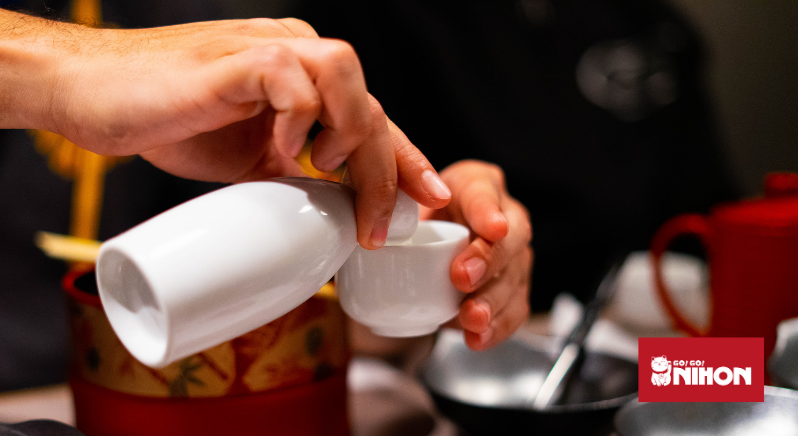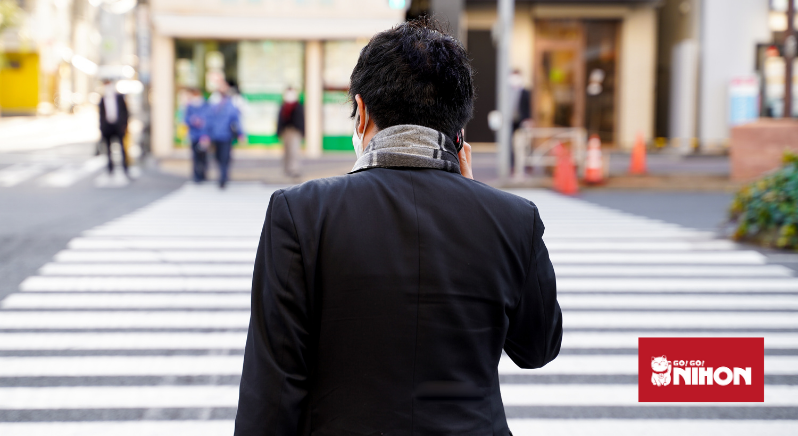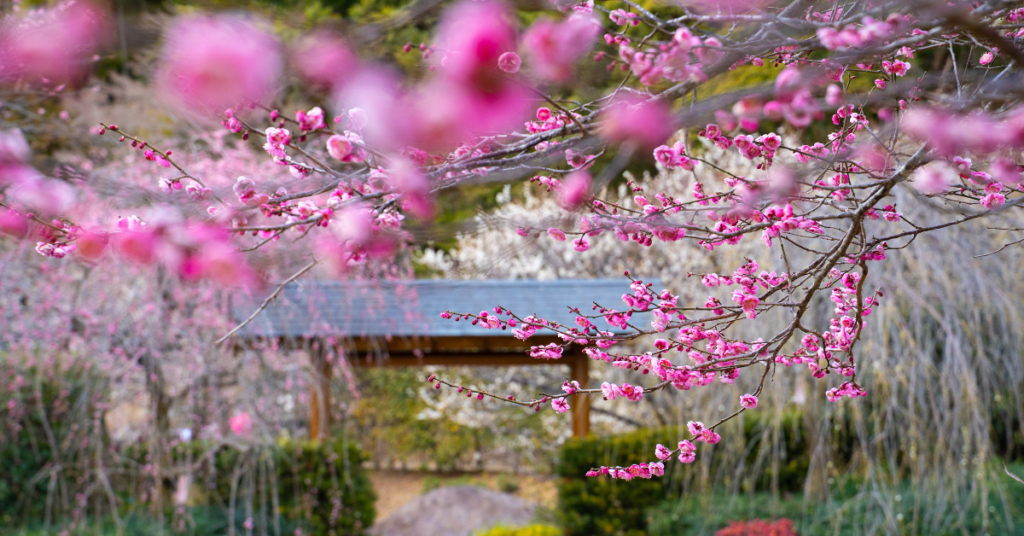A lot of what you hear about the Japanese work culture tends to focus on one thing: the long, unrewarding hours and the overwork. But there are actually so many unique aspects of Japanese work culture that are very interesting for foreigners, especially if you hope to one day work for a Japanese company in Japan.
Note these examples are just some of the most common traditions and practices that you may find in a Japanese company, but each company is different and will have a different culture and way of operating.

Senpai and kōhai culture
Senpai 先輩 and kōhai 後輩 mean “senior” and “junior” and these hierarchies permeate all relationships in Japanese society, not just at work. A senpai is usually older and of higher ranking, or has been at the company for longer. They usually act as a mentor for kōhai, although in reality not all senpai are as generous or genuine about mentoring junior colleagues.
This hierarchy dictates all sorts of unspoken rules in Japanese work culture, including where you sit at the meeting table, how you conduct yourself at drinking parties and what level of politeness you need to use.
As an outsider to a Japanese company, all the etiquette surrounding senpai and kōhai culture can be bewildering, but it’s something that you will pick up quickly once you’re in that environment.
Punctuality
Being on time in Japan is crucial. You’ll see this in your everyday life when you take public transport, where trains follow a strict timetable and even the slightest delay elicits profuse apologies. Being late is seen as a huge inconvenience for the people who are left waiting, so when your boss says the meeting is at 9am, you actually need to be ready for the meeting by 8:50am (but you start right on time at 9am). The same goes for your work hours – you’re on time if you arrive at least 10 minutes earlier than your official start time.
Note that, paradoxically, this punctuality sometimes doesn’t extend to the end of meetings and you could find yourself sitting in a meeting room for far longer than you hoped to!
Exchanging business cards
Knowing how to exchange meishi 名刺 is very important in Japanese work culture. Like many other aspects of work in Japan, the process of exchanging business cards depends on rank and order. This dictates who gives their card first i.e. those of higher rank will exchange their cards first and then move down the ranks.
You could write an entire book on all the intricacies of how to exchange business cards, but here are some important things to remember to never do:
- Put business cards away immediately in your pocket or wallet. This is a sign of disrespect to the person who gave it to you. The normal practice is to keep them out for the duration of the meeting, arranged in the order that the other people are seated in.
- Not reading the card when you receive it. While it might be normal outside of Japan to give someone’s business card a quick glance when receiving it, it’s important in Japan to properly read the other person’s card.
- Not presenting your card with the front facing the other person. Your meishi is essentially your “face”, so don’t cover or hide it.
- Covering the other person’s card with your hands. More important than your own “face” is the other person’s “face”, so make sure not to cover the front of their card with your hands.
- Not having any business cards to give. Always make sure you have enough business cards with you when going to a meeting. If you do end up in a situation where you have no cards to give, you can say that you have run out and you’re getting some more printed. But in reality, everyone knows what that excuse really means!
Buying omiyage
The word “omiyage” お土産, refers to a souvenir (usually edible) that you buy as a gift when you travel somewhere. You’ll find omiyage shops everywhere you go in Japan and it’s customary to buy a box of local confectionery or snacks that’s nicely packaged for your work colleagues when you go out of town. Depending on the culture of the company, it could be considered extremely rude if you don’t bring back omiyage for your colleagues. In some companies, buying omiyage is also a way for employees to show appreciation for being allowed to take a holiday.
Giving ochūgen and oseibō
Ochūgen 御中元 and oseibō 御制帽 refer to seasonal gift-giving traditions, where you send a gift to a client or business partner to thank them for their business relationship. Ochūgen is usually sent in summer in July, while oseibō is sent in December.
People also send these gifts outside of a work setting when they wish to show someone gratitude.

Taking part in nomikai
Nomikai 飲み会 is a drinking party that is very specific to Japanese culture and prevalent within a work setting. While nobody will force you to attend a nomikai, it’s expected that you do so to build good relationships with others in your company.
Sending nengajō
Nengajō 年賀状 are New Year’s cards that people send, much like you might send Christmas cards each year to your colleagues, friends and family. They are sent between colleagues, as well as to clients and business partners.
The cards often depict the Chinese zodiac animal of the new year e.g. cards for 2020 featured the rat and cards for 2021 will feature the ox.
Some common phrases written in these cards include:
明けましておめでとうございます
Akemashite omedetōgozaimasu
Happy New Year!
昨年はお世話になりました
Sakunen wa osewa ni narimashita
Thank you for your support last year.
今年もよろしくお願いします
Kotoshi mo yoroshiku onegaishimasu
I look forward to working with you again this year.
Read more about how New Year is celebrated in Japan.
One job for life
While in your home country, it might be normal and acceptable to change jobs several times in your lifetime, this is sometimes frowned upon in Japan. Instead, Japanese workers take on lifetime employment, or shūshin koyō 終身雇用, where they are expected to stay in one company until they retire. This system was very popular throughout the 20th century, but many companies abandoned the tradition following the 2007 global financial crisis when they had to lay many people off. Additionally, young people are forcing companies to change, with more graduates these days quitting their first job within three years.
There are many other traditions, practices and etiquette when it comes to Japanese work culture, but these are some of the most common ones that you are likely to encounter if you work for a Japanese company. As we mentioned at the start of this article, every company is different, so be vigilant and pay close to attention to how your colleagues behave and ask if you’re unsure about anything. It’s all a learning process too, so don’t stress too much about getting everything right straight away.
If you want to work in Japan, then knowing business Japanese is crucial to your success in the Japanese workplace. Communication will be easier and so will getting to understand your company’s work culture. In partnership with the Intercultural Institute of Japan, we are offering an online business Japanese course where you will learn language skills for the workplace, how to correctly use formal/polite Japanese, how to communicate via email and phone and how to conduct yourself in business meetings.
Learn more about the course and sign up here.






